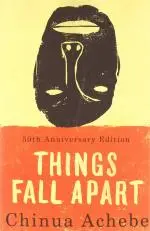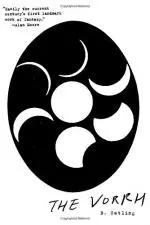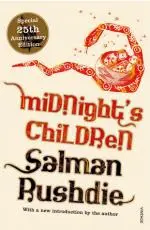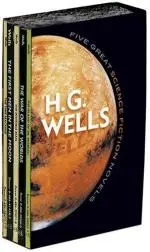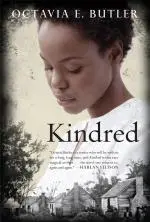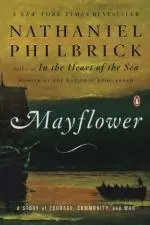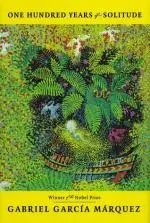The Merriam-Webster Dictionary defines colonialism as “control by one power over a dependent area or people.”
Themes related to colonialism and its effects are explored by science fiction and fantasy authors as well as historians, because those genres offer fertile ground for experimentation with the laws of reality and human behavior. It's important to note, however, that there is a difference between colonialism and imperialism, although not all of the titles on this list fall strictly into the camp of addressing one or the other. The Stanford Encyclopedia of Philosophy offers further definition to the term 'colonialism':
The term colony comes from the Latin word colonus, meaning farmer. This root reminds us that the practice of colonialism usually involved the transfer of population to a new territory, where the arrivals lived as permanent settlers while maintaining political allegiance to their country of origin.
![]() 1. 'Things Fall Apart' by Chinua Achebe
1. 'Things Fall Apart' by Chinua Achebe
This is a title that you may have encountered in high school, and there's a chance that you're less than fond of it as a result. But if you read Chinua Acebe a little too early, there's no reason why you can't revisit this Nigerian author for another shot. The dual stories in Things Fall Apart follow one man's detachment from the tribal culture in which he was raised and the impact of European missionaries.
![]() 2. 'The Vorrh' by Brian Catling
2. 'The Vorrh' by Brian Catling
I reviewed The Vorrh here on LitReactor when it was re-released in the U.S., and it's one of the first titles that came to mind when I was trying to think of titles for this list. Catling has created an intriguing modern fiction that blends themes of colonialism with more surreal elements. It tells the story of a warrior named Tsungali who is ordered to hunt down former English soldier, Peter Williams. This will be difficult because Williams is attempting to become the first human to cross the Vorrh, a massive, magical jungle in the heart of Africa.
![]() 3. 'Midnight's Children' by Salman Rushdie
3. 'Midnight's Children' by Salman Rushdie
Midnight's Children tells the story of Saleem Sinai, who was born at the precise moment of India's independence. He is one of 1,001 children born in the midnight hour, all of whom have special gifts and are telepathically connected with Saleem. But as he grows, Saleem learns that his life is inseparably linked to that of his motherland, and his every act is mirrored and magnified in the events that shape the newborn nation of India.
![]() 4. 'War of the Worlds' by H.G. Wells
4. 'War of the Worlds' by H.G. Wells
Part of the lasting popularity of War of the Worlds likely lies in its analysis of real world issues through the lens of an alien invasion. Wells makes an outright comparison between the Martian invasion and colonial expansion in Tasmania. "The Tasmanians," Wells writes, "in spite of their human likeness, were entirely swept out of existence in a war of extermination waged by European immigrants, in the space of fifty years. Are we such apostles of mercy as to complain if the Martians warred in the same spirit?"
![]() 5. 'Kindred' by Octavia E. Butler
5. 'Kindred' by Octavia E. Butler
Butler is a master when it comes to using the tools of speculative and science fiction to scrutinize historical and social constructs. In Kindred, a modern black woman is snatched from her home in California and transported to the antebellum South. The main character is drawn back repeatedly through time to the slave quarters. Every trip is longer and more dangerous until it is uncertain whether she will ever return to the present, or exist at all.
![]() 6. 'Mayflower: A Story of Courage, Community, and War' by Nathaniel Philbrick
6. 'Mayflower: A Story of Courage, Community, and War' by Nathaniel Philbrick
This is the one nonfiction title I included on this list. Philbrick does an amazing job of creating historical narratives that are both informative and highly entertaining. Mayflower chronicles the nitty-gritty details about what it took to survive in the early years of the American colonies.
![]() 7. 'One Hundred Years of Solitude' by Gabriel García Márquez
7. 'One Hundred Years of Solitude' by Gabriel García Márquez
One Hundred Years of Solitude is the story of the rise and fall of the mythical town of Macondo, seen through the history of 'the family.' In the scrutinization of the many aspects of the family, all of humanity is reflected. In the growth and subsequent decay of Macondo, the reader sees all of Latin America.
Do you have any other books you would recommend to readers as they sit around the table this Thanksgiving? Let us know in the comments.

About the author
Leah Dearborn is a Boston-based writer with a bachelor’s degree in journalism and a master’s degree in international relations from UMass Boston. She started writing for LitReactor in 2013 while paying her way through journalism school and hopping between bookstore jobs (R.I.P. Borders). In the years since, she’s written articles about everything from colonial poisoning plots to city council plans for using owls as pest control. If it’s a little strange, she’s probably interested.
